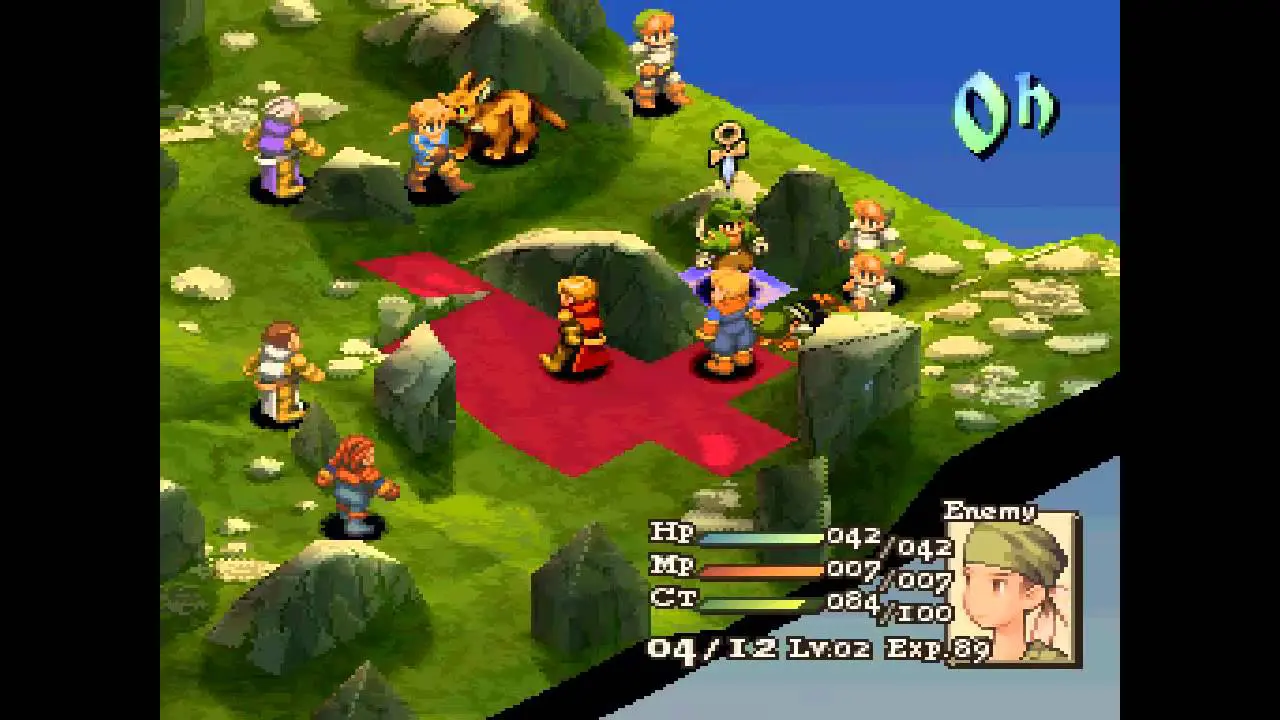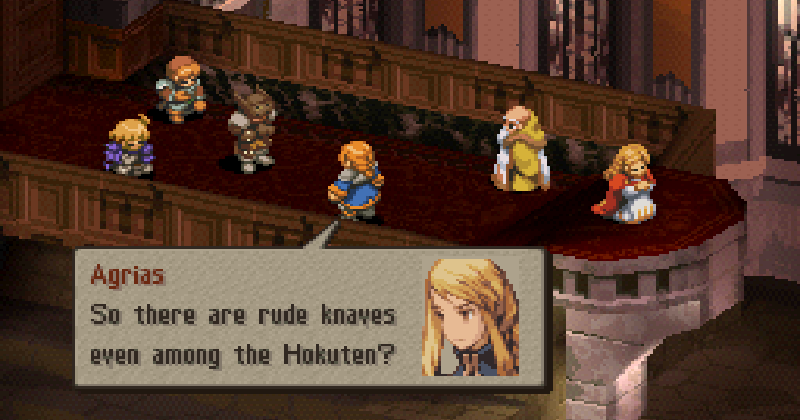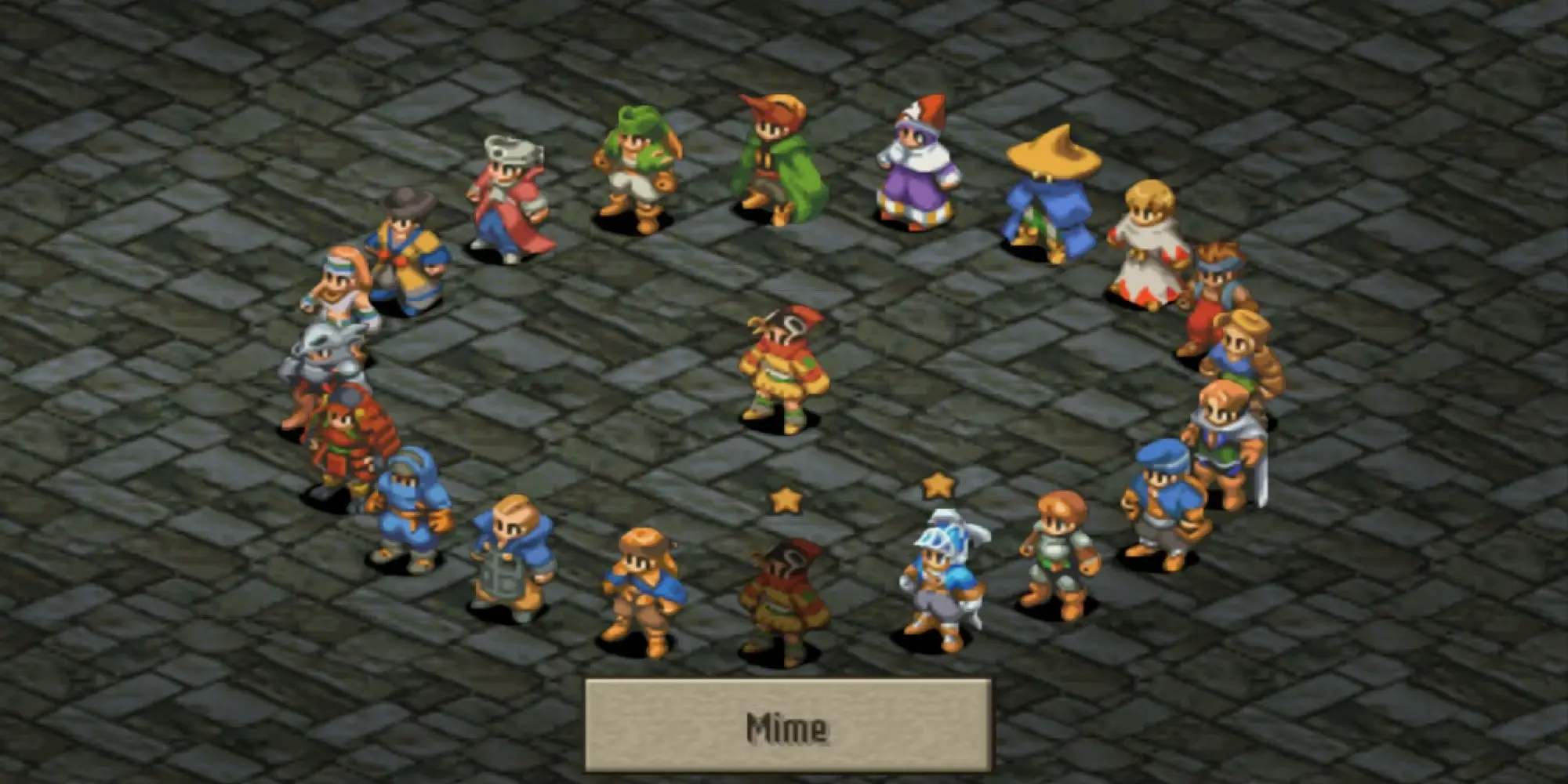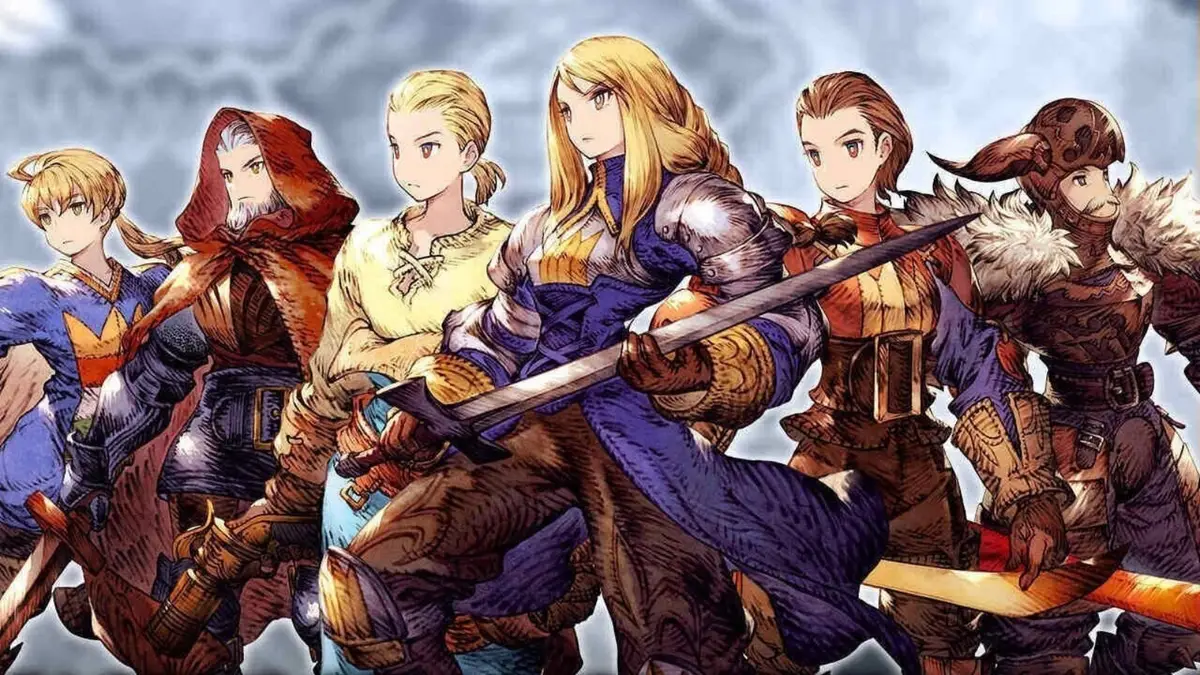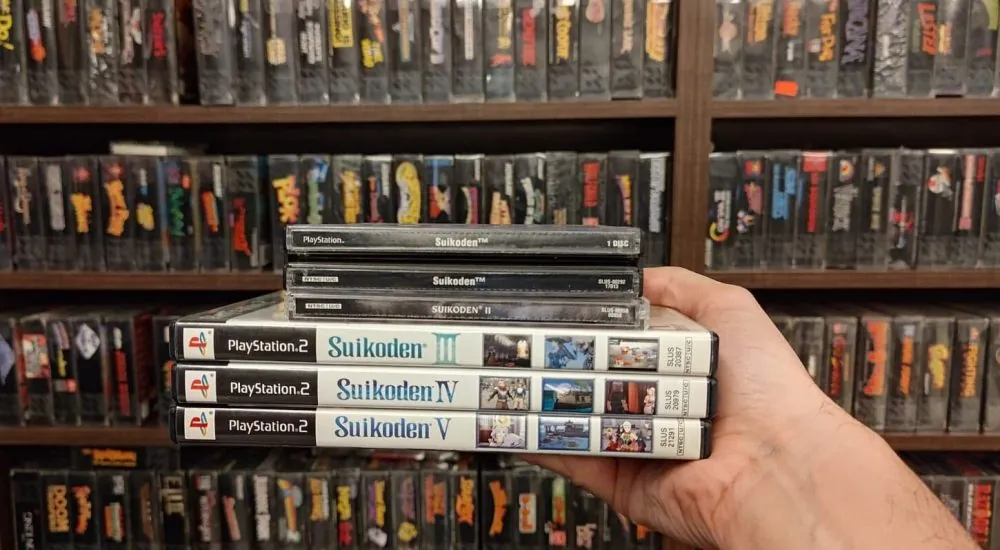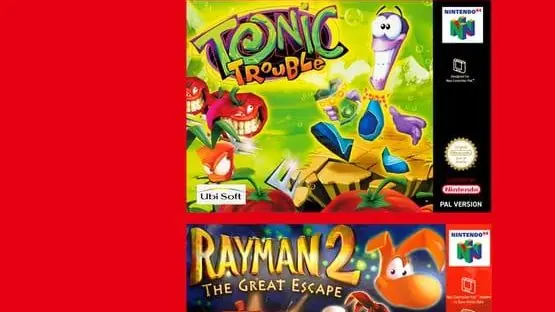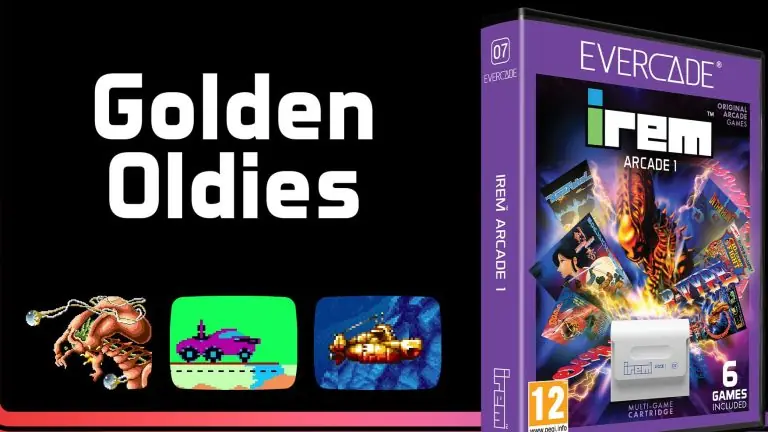Launched amidst resounding excitement in February 1998, “Final Fantasy Tactics” emerged as a pioneering title for Squaresoft on the PlayStation platform. Diverging from their renowned repertoire of traditional and action RPGs, this milestone release captivated gamers with its fresh strategic gameplay. Crafted by the brilliant minds behind “Tactics Ogre,” this strategy RPG masterpiece weaved a complex narrative with exhilarating, thought-provoking challenges. Despite a few hiccups in its execution, “Final Fantasy Tactics” triumphs as an enthralling and deeply satisfying gaming experience that continues to thrill players to this day!
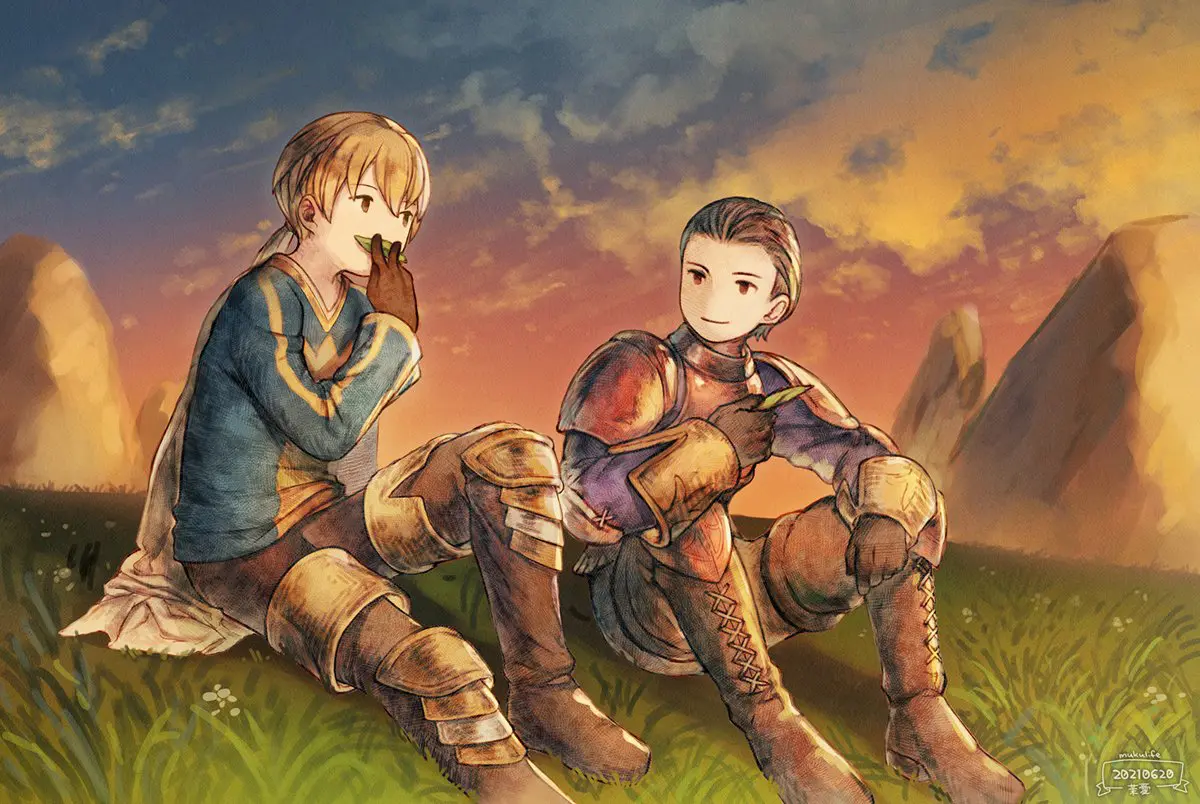
Final Fantasy Tactics revolves around the fixed outcome of the history of the land of Ivalice, following the aftermath of the Fifty-Years War. The story unfolds amidst chaos, with food shortages, unhappy peasants, and power struggles among ruling lords leading to the Lion War between Princes Larg and Goltana. Despite the official narrative painting peasant Delita Hyral as the hero who ends the war and rises to the throne, the true hero, Ramza Beoulve, is forgotten by history. The game delves into multiple sub-plots and characters, with Ramza and Delita taking center stage while numerous other characters contribute to the intricate storyline. The game’s epic and structured plot, with parallels to myths and historical church roles, sets it apart from other RPGs, offering layers of complexity that reveal new insights upon replaying.
Square added the “Brave Story” feature in Final Fantasy Tactics, which serves as a comprehensive reference to the game’s plot. It includes character biographies, item lists, and the ability to replay most plot sequences. While battle dialogue is excluded, players can revisit key story moments at any time. However, the game’s excellent plot is hindered by a poor translation, with numerous errors and inaccuracies throughout. This makes it challenging for players to fully understand and appreciate the storyline. Despite the flaws in translation, the Brave Story feature remains a useful tool for players to immerse themselves in the game’s narrative.
The game has impressive graphics, with 3D-designed fields and 2D character sprites. The battlefields are cleanly designed for varied yet easy-to-navigate scenery. Characters move smoothly, with each class featuring unique movements, but regular soldiers do look similar, creating a clone-like army effect. The spell animations are diverse and well-done, showing their strength with distinct visuals. The summoning spells stand out with detailed creature designs and impressive power demonstrations. More intricate effects might slow down the PlayStation a bit, but it doesn’t detract from the overall beauty of the magic animations. The game’s few full-motion video scenes are well-integrated and not overly extravagant.
Generally, the game’s sound effects are good, but some don’t quite hit the mark. The screams and certain combat noises, like sword clinks, feel weak, whereas spell casts and ranged weapons like bows and guns sound appropriate. The standout feature is undoubtedly the music. Composed by Masaharu Iwata and Hitoshi Sakimoto, the score shines with a diverse array of battle themes varying from eerie to urgent. The town and menu music are lively, while the story sequences come with epic and emotional soundtracks. Music tailored to individual characters matches their traits, enhancing the game’s overall majestic and immersive atmosphere.
Final Fantasy Tactics is a strategy RPG that is similar to a game of chess, with different units on a battlefield each having unique capabilities. The game features a wide variety of character classes, such as Knights, Archers, Wizards, Dancers, Calculators, and Mediators, each with distinct strengths, weaknesses, and abilities. The Job System allows characters to acquire abilities from different classes, leading to unique and powerful combinations. Specializing characters and unlocking advanced classes require strategic planning and investment in character development. Guest characters with special abilities add variety to battles, where players can have up to 6 characters on their side facing varying enemy forces in different terrains. Despite the game’s depth and complexity, some issues with small battlefields limiting strategy and inconsistent difficulty levels detract from the overall experience.
In conclusion, Final Fantasy Tactics is a massively entertaining game. Sure, it might not be the hardest game out there, but it’s an absolute blast to play. With a variety of job classes to choose from, you can replay it again and again. If you’re looking for a fun game with a solid storyline, this one is definitely a must-play!


